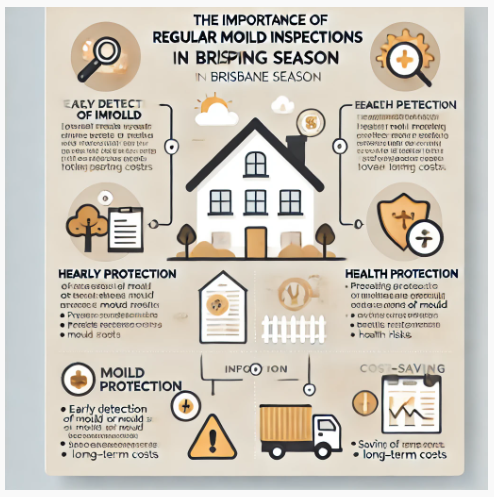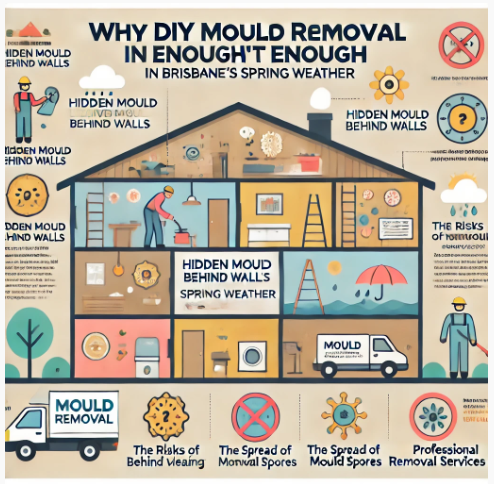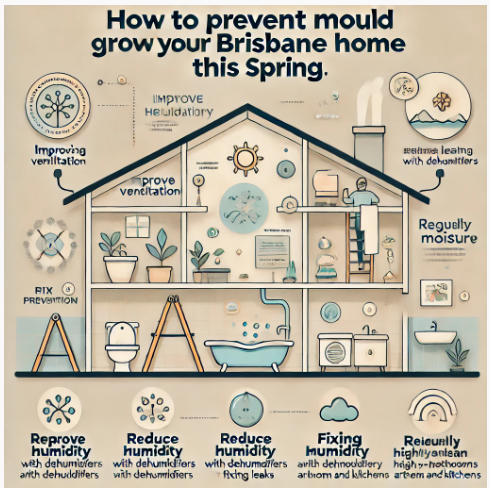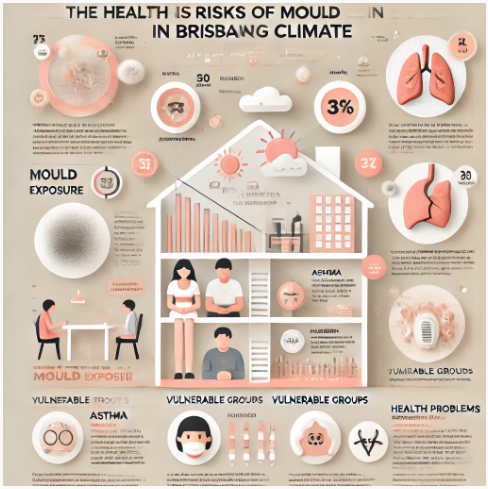Mould is a persistent issue in many Brisbane homes, primarily due to the city’s subtropical climate and high humidity levels. Understanding where mould is most likely to grow is the first step in preventing and addressing this problem. In this blog, we’ll identify the common areas for mould growth in your Brisbane home and provide prevention tips.
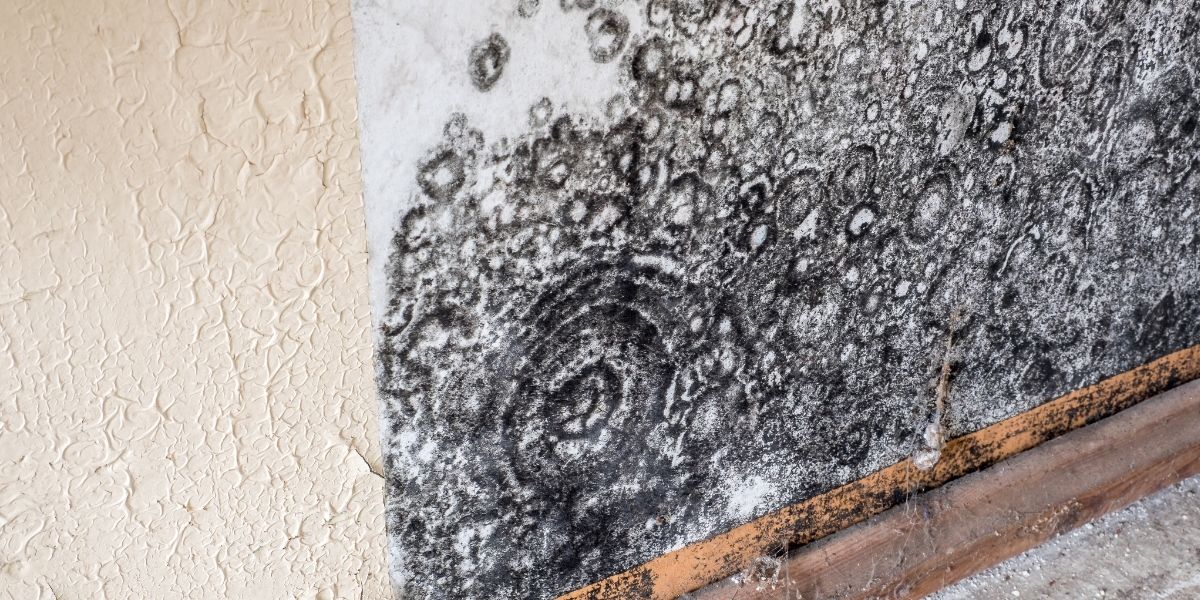
Brisbane’s Unique Climate and Mould Growth
Brisbane’s subtropical climate, characterised by hot, humid summers and mild winters, creates ideal conditions for mould growth.
Mould thrives in environments with excess moisture, making it a common issue in many homes throughout the city. Here are some common areas where mould tends to develop:
- Bathrooms: Bathrooms are notorious for mould growth due to the high humidity and frequent water exposure. Pay close attention to grout, caulk, and areas around the shower or bathtub.
- Kitchens: Like bathrooms, kitchens can experience moisture build-up, especially near sinks and around dishwashers. Keep an eye on hidden spaces under appliances.
- Basements: Basements often have limited ventilation and can be susceptible to dampness, making them a prime location for mould growth, especially in Brisbane’s humid climate.
- Attics: Attics may suffer from inadequate ventilation, leading to trapped moisture. Leaky roofs or poor insulation can exacerbate the issue.
- Wall Cavities: Mould can develop behind walls, especially if there have been past leaks or if the area lacks proper insulation and ventilation.
- Crawl Spaces: Homes with crawl spaces may experience mould issues with poor moisture control in these areas.
- Air Conditioning Systems: HVAC systems can harbour mould if not properly maintained and cleaned, as they can spread mould spores throughout your home.
Preventing Mould Growth
Now that you know the common areas where mould can thrive in your Brisbane home, here are some prevention tips:
Ventilation: Ensure proper ventilation in high-humidity areas like bathrooms and kitchens. Use exhaust fans and open windows when possible.
Fix Leaks: Promptly repair any leaks in your home, including roof leaks, plumbing issues, and foundation cracks.
Use Dehumidifiers: In Brisbane’s humid climate, dehumidifiers can help maintain ideal indoor humidity levels.
Regular Cleaning: Regularly clean and maintain areas prone to mould growth. Use mould-resistant products in bathrooms and kitchens.
Insulation and Sealing: Properly insulate and seal your home to prevent moisture infiltration.
Aircon Maintenance: Schedule regular maintenance for your heating, ventilation, and air conditioning systems to prevent mould growth in Brisbane.
Professional Inspections: Consider professional mould inspections, especially if you suspect hidden mould or have recurring issues.
Awareness of the common areas for mould growth in your Brisbane home is the first step in effective prevention.
Brisbane’s humid climate demands extra vigilance to maintain a mould-free living environment. If you do encounter mould issues, consult with professionals like Reliance Mould Solutions to ensure that the problem is addressed comprehensively and safely.
In a subtropical climate like Brisbane’s, mould growth is a common problem for many homeowners. The high humidity levels and warm temperatures provide an ideal environment for mould to thrive.
But where exactly are these pesky mould colonies likely to pop up in your home? Let’s break it down and explore some practical solutions for mould prevention.
Bathroom Woes: Bathrooms are a hotspot for mould growth, thanks to the constant exposure to water and the steamy atmosphere. The most vulnerable areas are the grout and caulk, the spaces around your shower or bathtub, and even the ceiling.
Mould spores love to take root in these moisture-laden corners. To combat this, use exhaust fans to reduce humidity, and promptly fix any leaks or damaged caulking to keep mould at bay.
Kitchen Conundrums: Kitchens are another breeding ground for mould, given the regular water usage and humidity levels. Sinks and dishwashers can often hide moisture build-up in concealed spaces, leading to potential mould growth. Regularly check under your appliances and use exhaust fans to control moisture. A dry and well-ventilated kitchen is your best bet against mould.
Basement Blues: If your home has a basement, you should be vigilant. Basements are often poorly ventilated and can become damp, making them prime real estate for mould. This is especially true in Brisbane’s humid climate. Use dehumidifiers to maintain optimal humidity levels, and inspect your basement regularly for any signs of water intrusion.
Attic Issues: Attics, often neglected, can also host mould. Inadequate ventilation, leaky roofs, or poor insulation can trap moisture and provide an inviting environment for mould to flourish. Ensure your attic is well-ventilated and consider improving insulation to prevent moisture build-up.
Hidden Menace in Walls: Mould isn’t always visible, and it can lurk behind your walls, especially if there have been previous leaks or if the walls lack proper insulation and ventilation. If you suspect a hidden mould, it’s essential to address the root cause and remediate it properly.
Crawling Mould in Crawl Spaces: Homes with crawl spaces may also experience mould problems if moisture control is lacking. To prevent mould in these areas, maintain good moisture control through proper insulation and ventilation.
HVAC Hazards: Your home’s heating, ventilation, and air conditioning (HVAC) system can inadvertently spread mould throughout your home if not adequately maintained. Dirty or mouldy HVAC systems can circulate mould spores into the air you breathe. Regular maintenance of your HVAC system is crucial to avoid this issue.
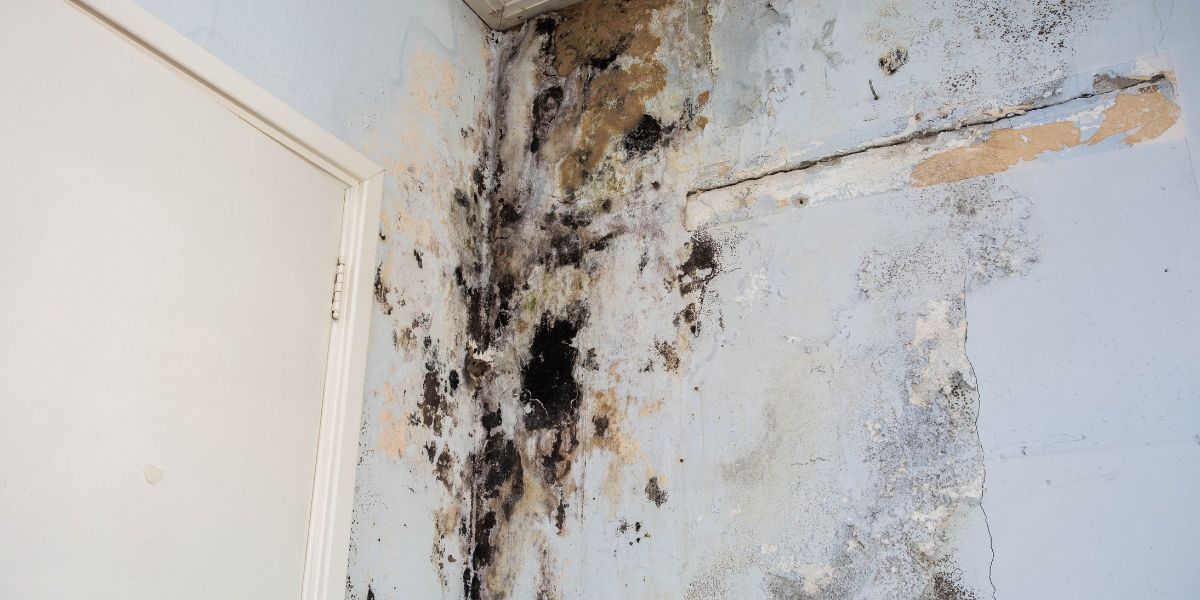
Preventing Mould Growth: Your Best Defence
Now that we’ve identified the common areas for mould growth in your Brisbane home, let’s delve into prevention strategies. The best defence against mould is a good offence. Here are some tips to help you keep your home mould-free:
Ventilation is Key: Ensure proper ventilation in high-humidity areas like bathrooms and kitchens. Use exhaust fans and open windows whenever possible to let fresh air and excess moisture out.
Fix Leaks Promptly: Address any leaks in your home as soon as you notice them. Whether it’s a roof leak, plumbing issue, or cracks in your home’s foundation, swift action can prevent moisture from accumulating and mould from taking hold.
Dehumidifiers Are Your Allies: Invest in dehumidifiers, especially in Brisbane’s humid climate. These handy devices can help maintain indoor humidity levels within a healthy range, making it harder for mould to grow.
Regular Cleaning and Maintenance: Regularly clean and maintain the areas most susceptible to mould growth, such as bathrooms and kitchens. Use mould-resistant products for added protection.
Insulation and Sealing: Properly insulate and seal your home to prevent moisture infiltration. This includes checking and improving the insulation in your attic and walls, as well as sealing any gaps and cracks.
Aircon Maintenance Matters: Schedule regular maintenance for your heating, ventilation, and air conditioning systems. This will not only keep your indoor air quality high but also prevent mould from infiltrating your HVAC system and spreading throughout your home.
Consider Professional Inspections: If you suspect hidden mould or have recurring mould problems, it may be wise to call in professionals for a thorough mould inspection. They have the expertise and equipment to detect and remediate mould effectively.
By following these tips and staying vigilant, you can create a healthier and mould-free living environment in your Brisbane home. Remember that in a humid climate like Brisbane’s, mould prevention is a constant battle. If you do encounter mould issues, don’t hesitate to reach out to experts like Reliance Mould Solutions to ensure a comprehensive and safe solution.
